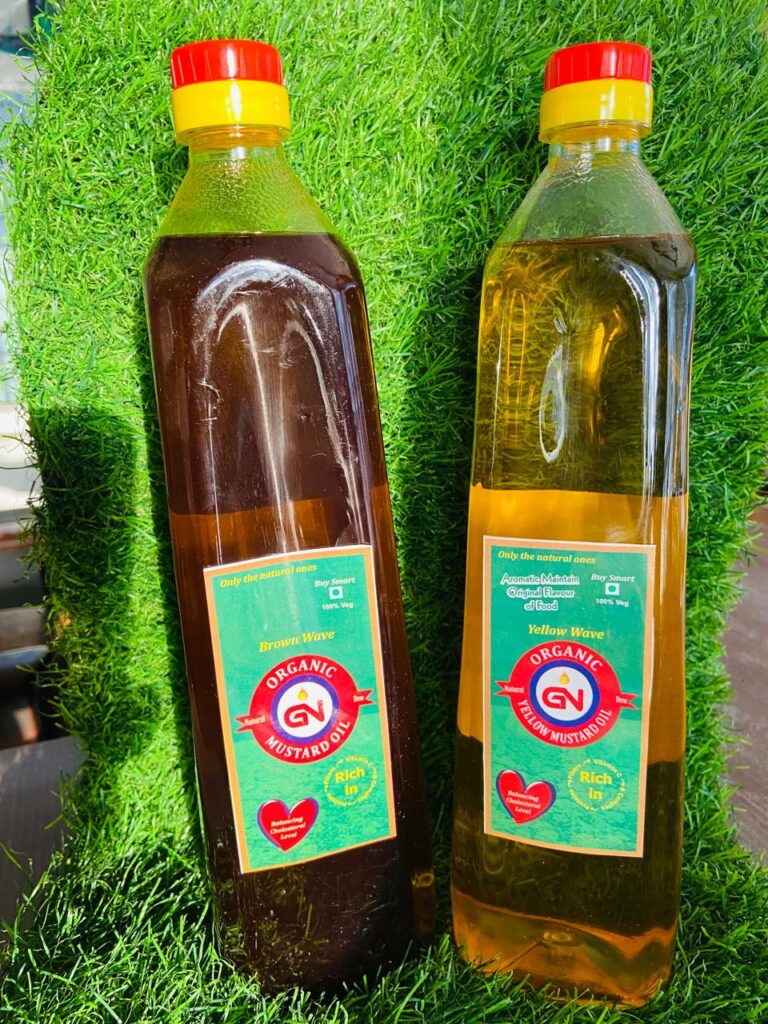Mustard Oil: Benefits, Risks, and Uses
Mustard oil, extracted from mustard seeds, has been used for centuries in South Asian cooking and traditional medicine. This article explores its benefits, risks, and various applications.
Nutritional Content
This oil is composed primarily of fats, making it a high-calorie food. In 100 grams, you get:
- 59.2 g of monounsaturated fatty acids
- 21.2 g of polyunsaturated fatty acids
- 11.6 g of saturated fatty acids
It also provides omega-3 and omega-6 fatty acids that contribute to its potential health advantages.
Health Benefits
Cardiovascular Benefits
A 2023 review suggests that mustard oil may help lower the risk of cardiovascular disease due to its rich unsaturated fat content. These fats can help reduce LDL (“bad”) cholesterol and support heart health. However, its overall impact remains debated because of the erucic acid present.
Anti-Inflammatory Properties
Containing omega-3 fatty acids and allyl isothiocyanate, this oil exhibits anti-inflammatory potential that might help ease conditions like arthritis, heart disease, and certain cancers. More research is needed to confirm these effects.
Antimicrobial and Antifungal Effects
Renowned for its natural antimicrobial qualities, mustard oil has traditionally been used to combat colds, congestion, and joint pain, as well as to promote oral health.
Dangers and Side Effects
Erucic Acid Concerns
Mustard oil contains erucic acid, which, in high doses, has been linked to heart issues in animal studies. Consequently, the U.S. FDA prohibits its sale as a cooking oil, though it remains popular in India and other parts of Asia. Some regions, including Australia and the EU, have established limits for its safe consumption.
Mustard Essential Oil Toxicity
A concentrated form, known as mustard essential oil, is toxic if ingested and should be used only externally when diluted with a carrier oil.
How to Use It
Culinary Uses
Despite restrictions in some countries, mustard oil remains a staple in Indian, Bangladeshi, and Pakistani kitchens. Common uses include:
- Sautéing and frying
- Pickling vegetables
- Adding a distinctive, pungent flavor to curries and marinades
Low-erucic acid versions are available for cooking.
Topical Uses
For skin and hair care, this oil is applied as:
- Hair care: A scalp massage to promote growth and reduce dandruff
- Skin care: A natural moisturizer to improve circulation and combat dryness
- Massage therapy: Traditionally used to alleviate muscle pain and boost blood flow
A Note on Coconut Oil
Coconut oil is another popular natural oil often discussed alongside mustard oil. Renowned for its rich flavor and potential health benefits, coconut oil has been celebrated in diets such as ketogenic and Paleo. While its benefits—like boosting immunity and aiding weight loss—are widely touted, nutrition experts remain divided. In our coconut oil section on the website, you can explore detailed comparisons, nutritional facts, and usage tips for coconut oil. Incorporating coconut oil into your diet can offer a versatile alternative for cooking and beauty routines.
Takeaway
Rich in monounsaturated and polyunsaturated fats, mustard oil offers potential heart health benefits, anti-inflammatory effects, and antimicrobial properties. However, its erucic acid content raises safety concerns, leading to restrictions in some regions. While it remains popular in many Asian countries, using low-erucic acid alternatives or applying it externally can be a safer choice. Balancing mustard oil with other oils like coconut oil—explored further on our website—can help you diversify your culinary and wellness practices.

